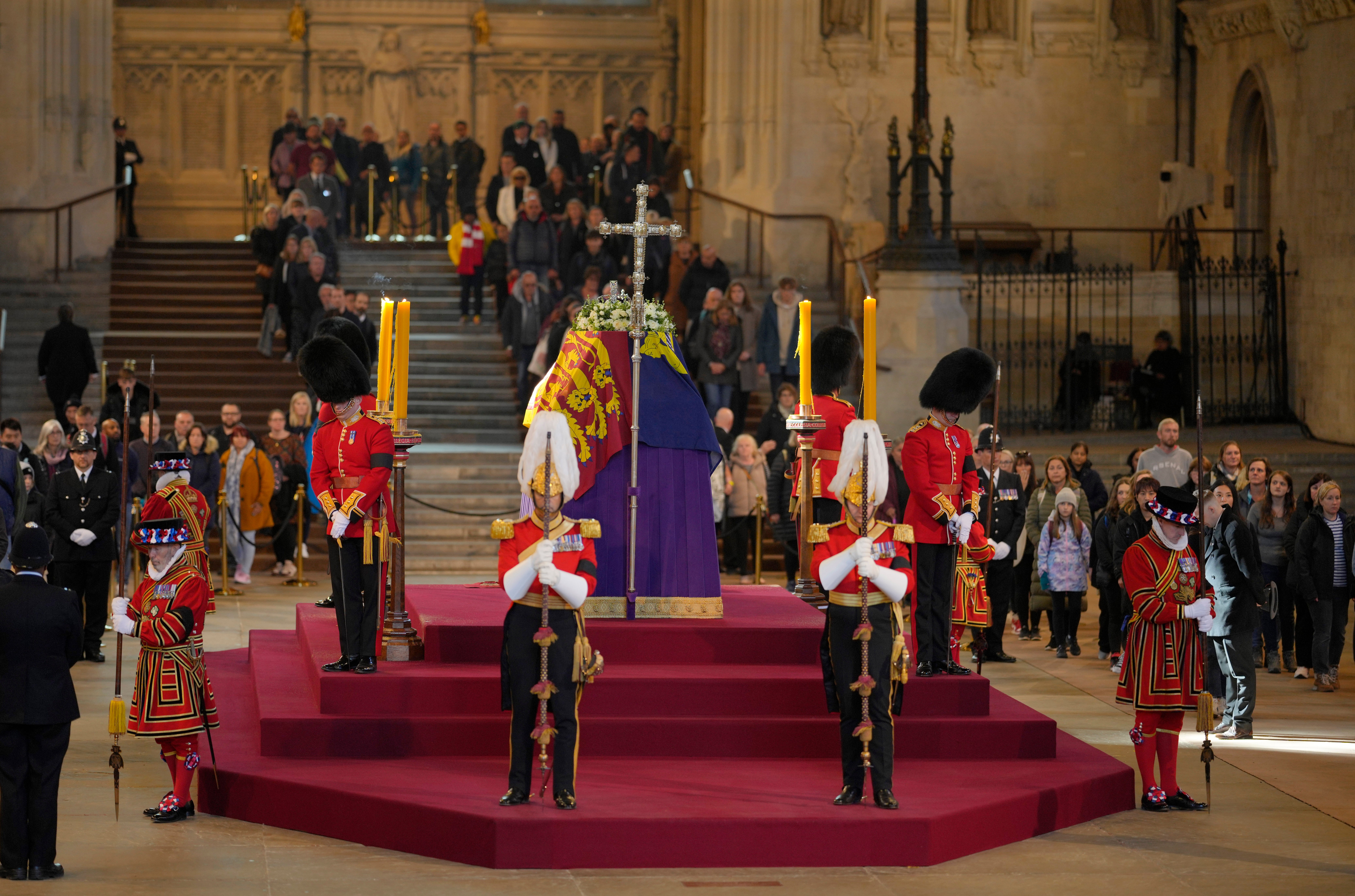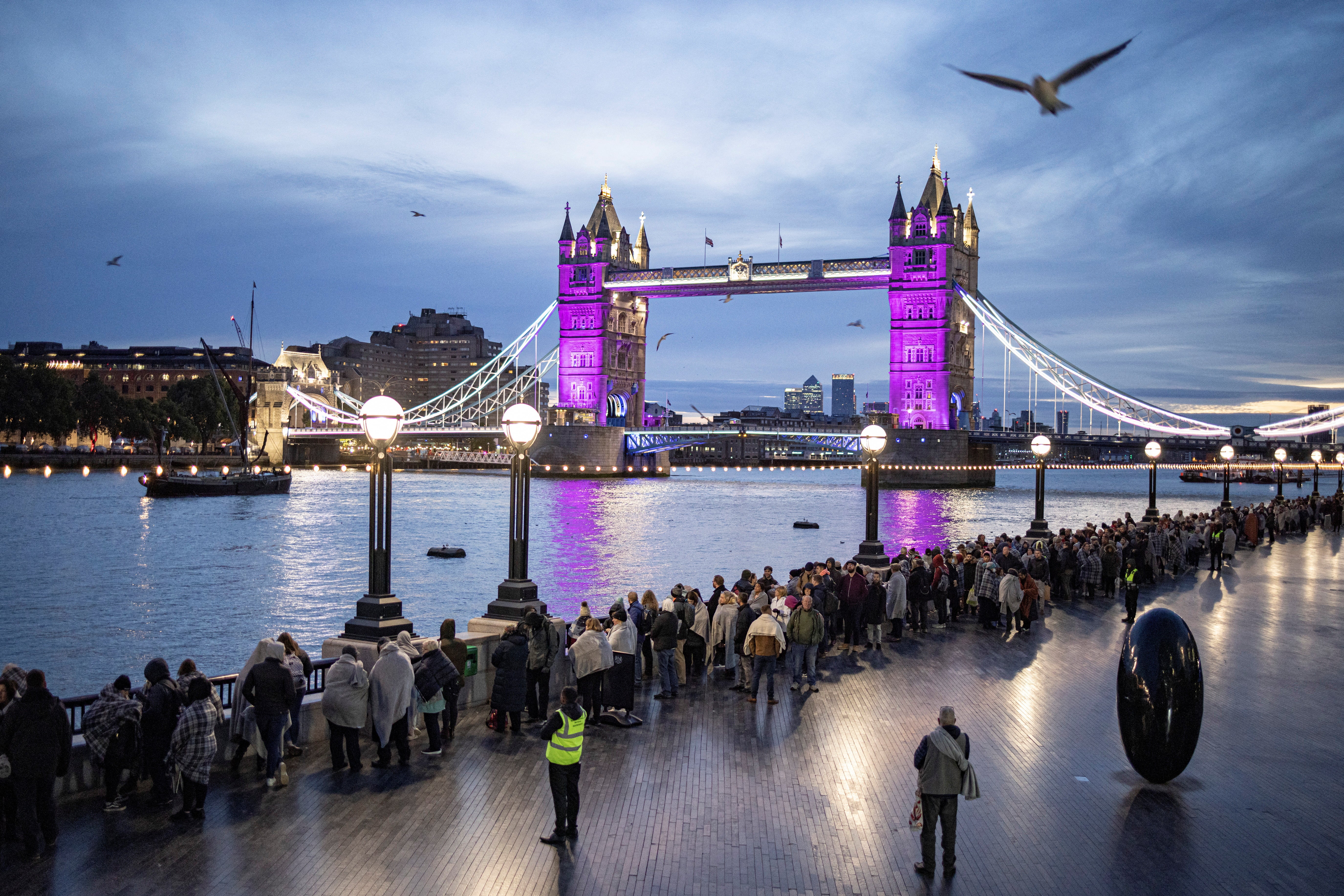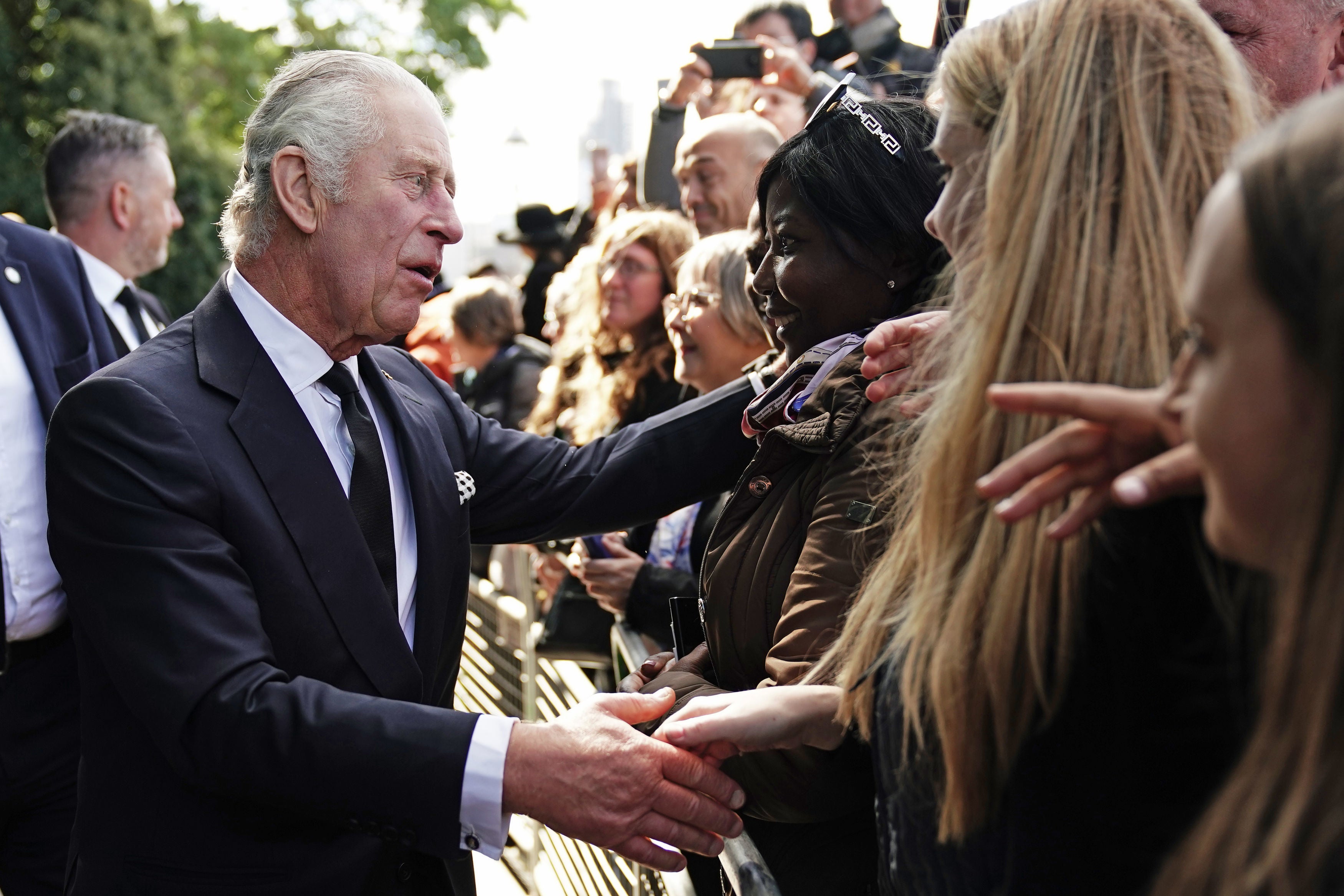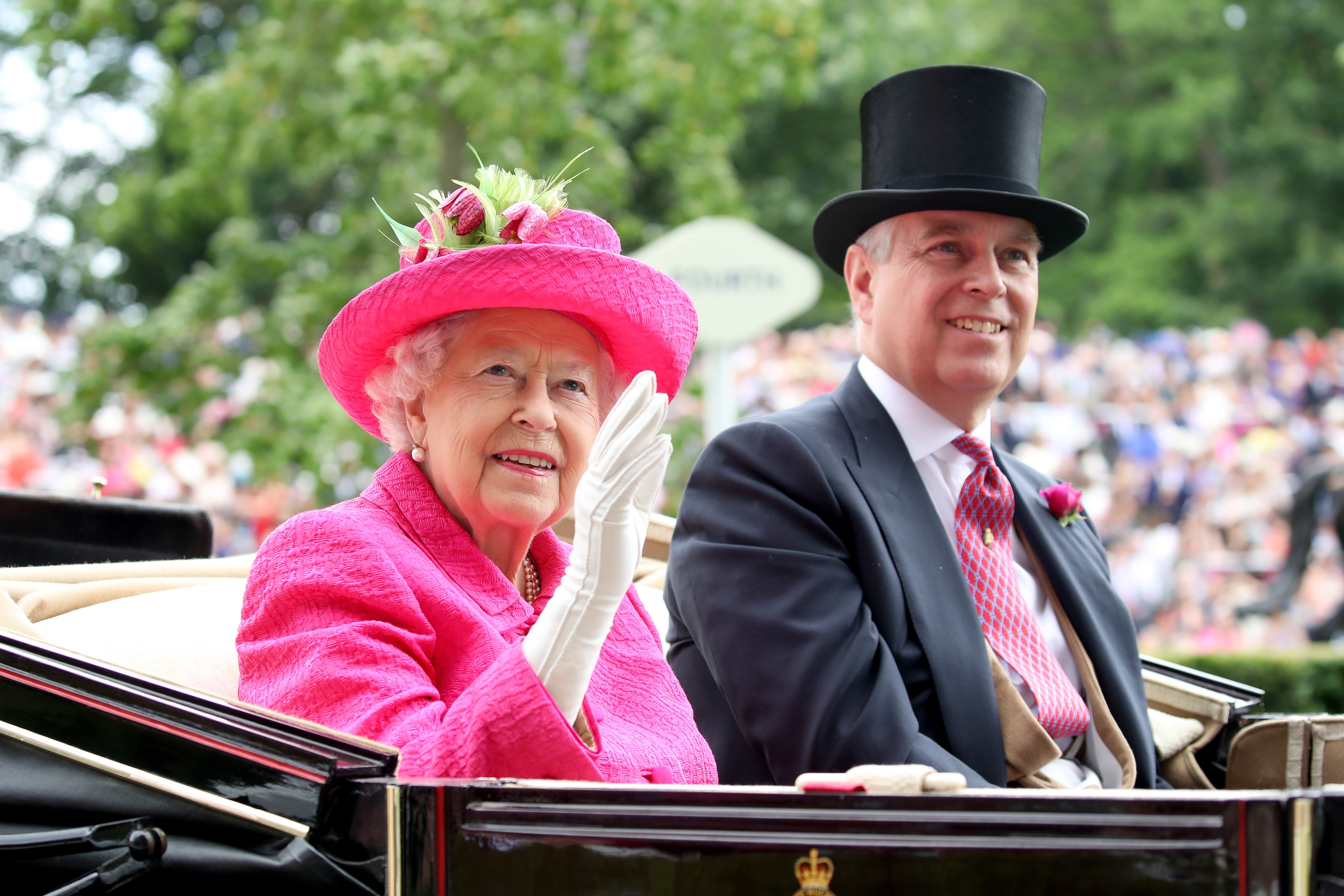We are witnessing a turning point in history
The future must be, as the palace has been so keen to suggest, about continuity – as well as change, writes Suzannah Lipscomb


Your support helps us to tell the story
From reproductive rights to climate change to Big Tech, The Independent is on the ground when the story is developing. Whether it's investigating the financials of Elon Musk's pro-Trump PAC or producing our latest documentary, 'The A Word', which shines a light on the American women fighting for reproductive rights, we know how important it is to parse out the facts from the messaging.
At such a critical moment in US history, we need reporters on the ground. Your donation allows us to keep sending journalists to speak to both sides of the story.
The Independent is trusted by Americans across the entire political spectrum. And unlike many other quality news outlets, we choose not to lock Americans out of our reporting and analysis with paywalls. We believe quality journalism should be available to everyone, paid for by those who can afford it.
Your support makes all the difference.There have been, simultaneously, two things happening this week: the demise of a sovereign and the making of a king. This duality is what has made the week’s events and the public response to them so mesmerising, and also so loaded with historical weight.
In these 10 days, we not only reckon with who we have been, but we grapple with who, as a nation, we want to become.
As the Queen’s biographer, Ben Pimlott, put it: “The death of a British monarch changes little in practical terms … Yet – in a way that is hard to define – it affects the mood.”
In this liminal period, King Charles’s visibility in the ceremony marking his mother’s death has been a crucial part of the visual transition. In practice, of course, we had seen this long before.
His appointment as her successor as head of the Commonwealth in 2018, his presence beside her at the state opening of parliament in 2019, and his acting in her stead before the Cenotaph on Remembrance Sunday and at the state opening of parliament this year were all moments of deliberate preparation to ensure that the constancy of the Queen translates into continuity with the King.
Over the past week, he has been everywhere, his actions signalling the priorities of the crown. In his first address and his speech before parliament, King Charles III pledged his commitment to the constitution and his deference to parliament, in the very hall where another king, his own namesake, was tried for not doing so.
His visits to the devolved nations, his speech in Welsh at the Senedd, even the vigil at St Giles’s Cathedral in Edinburgh have all gestured towards the importance of the union.
He has assured faith leaders that he will protect diversity and the practice of all “religions, cultures, traditions, and beliefs”, including secular beliefs. He has appeared countless times to greet the public, adopting a two-handed approach that carries a kind of warmth and intimacy with it, since he holds – as well as shakes – hands.

And there has been a surprising amount of public performance of grief by the royal family, including the first vigil by a woman – the Princess Royal – and by grandchildren, including an actual child – 14-year-old James, Viscount Severn – with his parents looking anxiously on.
The public response has been fascinating (one wit quipped that there are two kinds of people in the United Kingdom: those in The Queue and those watching those in The Queue).
Stephen Reicher, a professor of psychology who studies crowds, has rightly pointed out that there are many reasons for people to wait in line: many want to belong to something greater than themselves or to feel that they played some role in the making of this moment of history.
Reicher says there are a range of emotions that may be channelled by grieving the Queen: mourning the loss of their own mothers and grandmothers, expressing the accumulated horror of the pandemic or fear at the cost of living crisis, or bidding farewell to their own younger selves.

Reicher, who has previously written about how Hindus at the Magh Mela in near-freezing conditions understand the cold to shape their identity as pilgrims, argues that the “ordeal” of queuing is a crucial part of the experience.
It is as if we are viewing a kind of mass exercise in penance.
And yet, if one switches on the live feed in the morning to see people, who have been awake and on their feet throughout these uncharacteristically chilly September nights, shuffling into the hush of the ancient hall at Westminster so that they may bob or nod for a second before the coffin – before moving on – it is impossible to dismiss the obvious: that this is a palpable expression of reverence, affection and gratitude for Her Majesty the Queen.
The need to endure the transitory hardship of the queue is perceived by those waiting to be a way of acknowledging the Queen’s own service.

“She gave 70 years,” they say, “standing for a few hours is the least I can do”. Or as John Milton put it: “They also serve who only stand and wait.” And there have been so many of them: public viewing of the lying-in-state was originally planned to end on Saturday, but now terminates 36 hours later.
There has also been criticism – both those voices of dissent raised and alarmingly silenced in public spaces, and a strong strand of comment that uses the Queen’s death to point towards the monarchy as the symbol of the crimes of the British empire. We should be aghast at the revelations that have emerged about the scale and nature of these atrocities, and how recent they are.
The torture camps used against 150,000 Mau Mau suspects in Kenya in the 1950s were straight out of the Nazi playbook, with reports of the British abuse of Africans including castration, rape, sexual assault, starvation, electrocution, and sleep deprivation.
There must be a reckoning for these crimes – and yet the choice of target is curious. No one claims that there is any evidence that the Queen knew of these brutalities, let alone approved them.

And we can name those who did: the governor of Kenya, Evelyn Baring and colonial secretary Alan Lennox-Boyd, a Conservative politician who repeatedly denied the abuses, despite receiving memoranda and reports detailing the atrocities.
In a constitutional monarchy, it is confusing to find these historic crimes by elected politicians being laid at the Queen’s door.
In June, when still a prince, Charles spoke to Commonwealth heads of government in Rwanda and expressed his personal regret and the “depths of his personal sorrow” for the suffering wrought by slavery.
He remarked that the Commonwealth could not move forward without acknowledging the “wrongs of the past”. Surely, the same is true for the crown and empire. At a minimum, now is the time for royal honours to change their name – for an OBE to become an Order of British Excellence.
To keep up to speed with all the latest opinions and comment, sign up to our free weekly Voices Dispatches newsletter by clicking here
Yet, the future must be, as the palace has been so keen to suggest, about continuity – as well as change. As the public response and the gathering of world leaders tells us, the Queen herself provided an example and a legacy that cannot be dismissed.
In the absence of a written constitution, she created a role for a modern constitutional monarch in the face of the country’s declining geopolitical power.
At her coronation, the-then archbishop of Canterbury, Dr Geoffrey Fisher, argued that the diminution of the temporal power of the crown did not reduce the importance of her role – but enhanced it. It gave her, he said, the “possibility of a spiritual power … the power to lead, to inspire, to unite, by the sovereign’s personal character, personal convictions, personal example”.
This, the Queen had; and the Commonwealth – with its record of condemning racial discrimination and amplifying the voices of poor nations – was one of its most obvious manifestations.
The evidence suggests that the hereditary nature of royal power may have, rather miraculously, given us a new monarch who can heed his mother’s personal example – while making clear his commitment to change.



Join our commenting forum
Join thought-provoking conversations, follow other Independent readers and see their replies
Comments